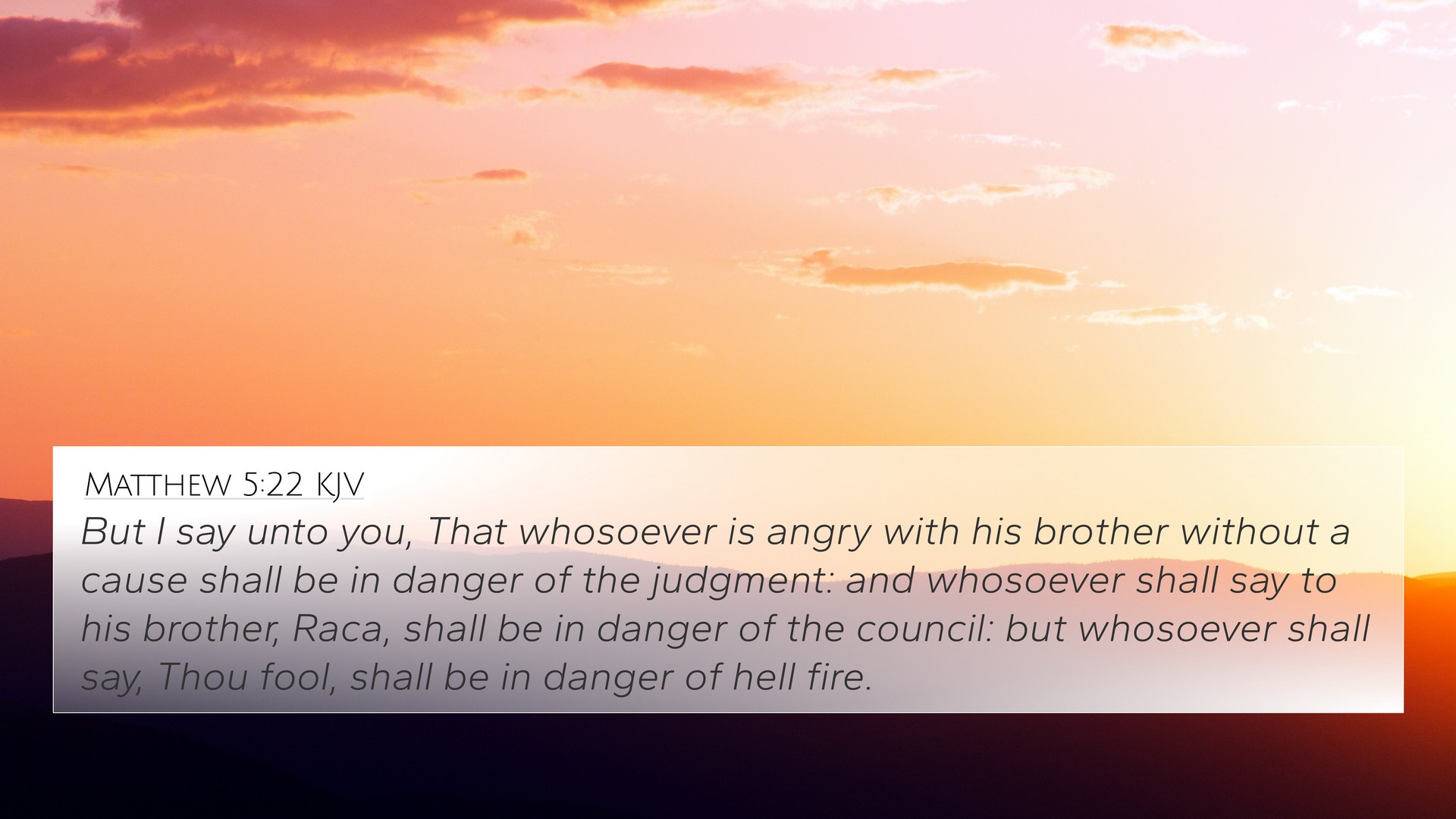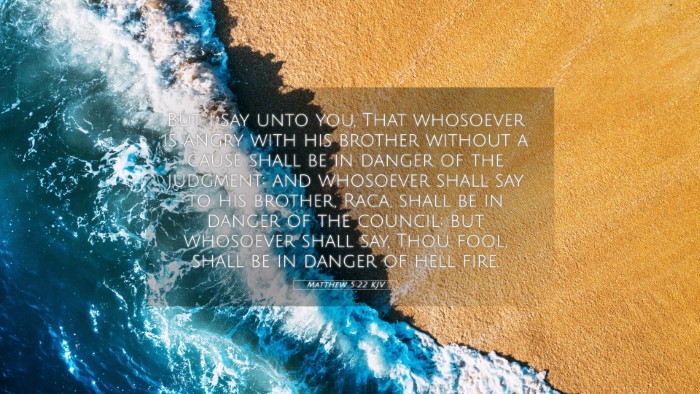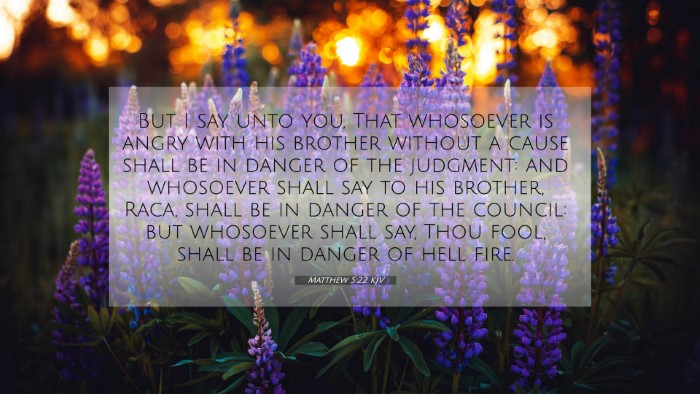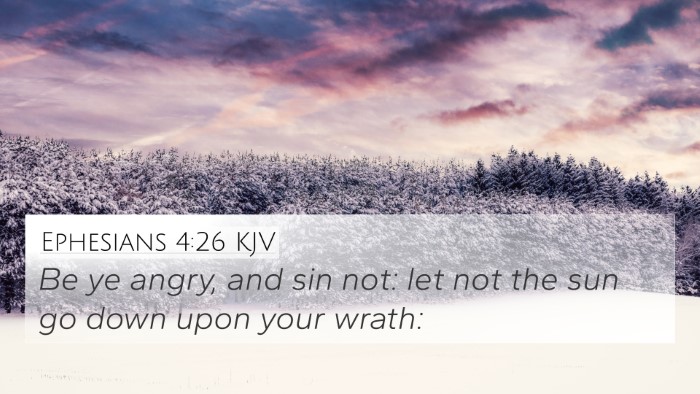This section features a detailed cross-reference designed to enrich your understanding of the Scriptures.
Below, you will find carefully selected verses that echo the themes and teachings related to Matthew 5:22 KJV. Click on any image to explore detailed analyses of related Bible verses and uncover deeper theological insights.
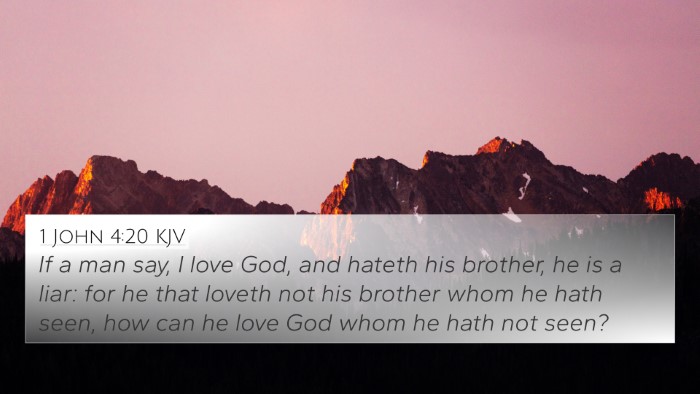 1 John 4:20 (KJV) »
1 John 4:20 (KJV) »
If a man say, I love God, and hateth his brother, he is a liar: for he that loveth not his brother whom he hath seen, how can he love God whom he hath not seen?
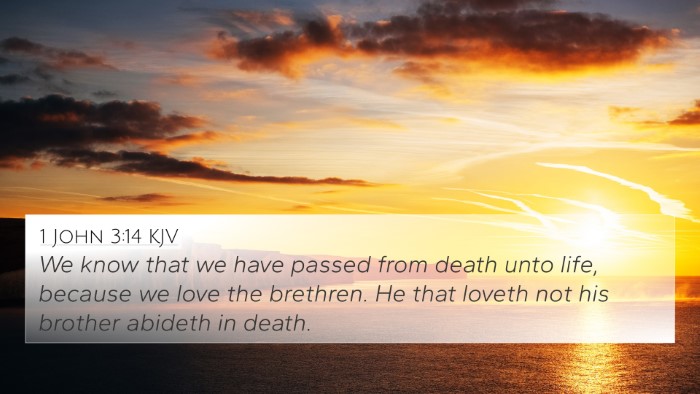 1 John 3:14 (KJV) »
1 John 3:14 (KJV) »
We know that we have passed from death unto life, because we love the brethren. He that loveth not his brother abideth in death.
 1 John 2:9 (KJV) »
1 John 2:9 (KJV) »
He that saith he is in the light, and hateth his brother, is in darkness even until now.
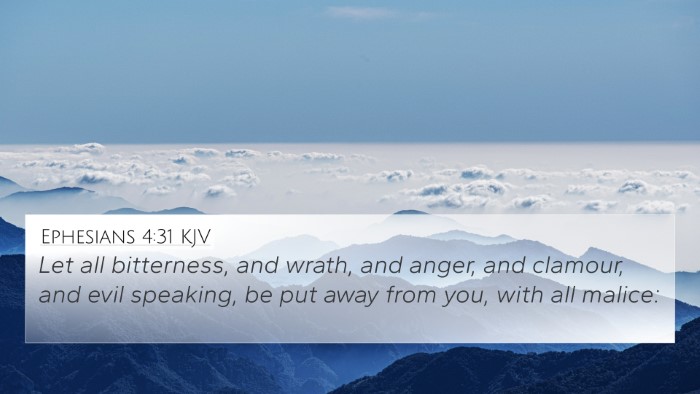 Ephesians 4:31 (KJV) »
Ephesians 4:31 (KJV) »
Let all bitterness, and wrath, and anger, and clamour, and evil speaking, be put away from you, with all malice:
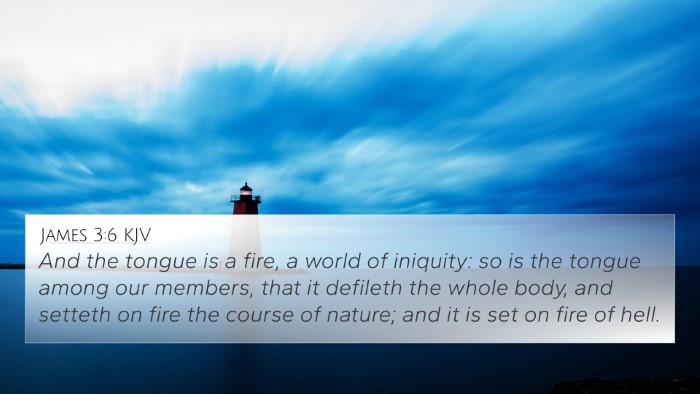 James 3:6 (KJV) »
James 3:6 (KJV) »
And the tongue is a fire, a world of iniquity: so is the tongue among our members, that it defileth the whole body, and setteth on fire the course of nature; and it is set on fire of hell.
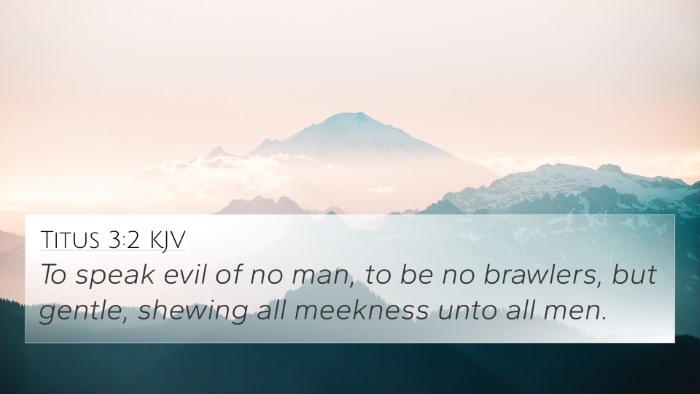 Titus 3:2 (KJV) »
Titus 3:2 (KJV) »
To speak evil of no man, to be no brawlers, but gentle, shewing all meekness unto all men.
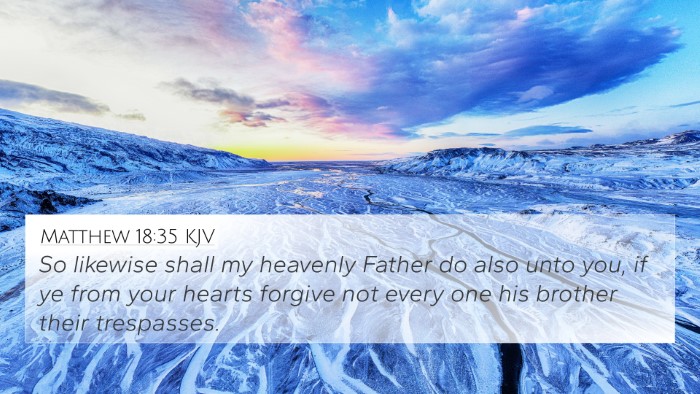 Matthew 18:35 (KJV) »
Matthew 18:35 (KJV) »
So likewise shall my heavenly Father do also unto you, if ye from your hearts forgive not every one his brother their trespasses.
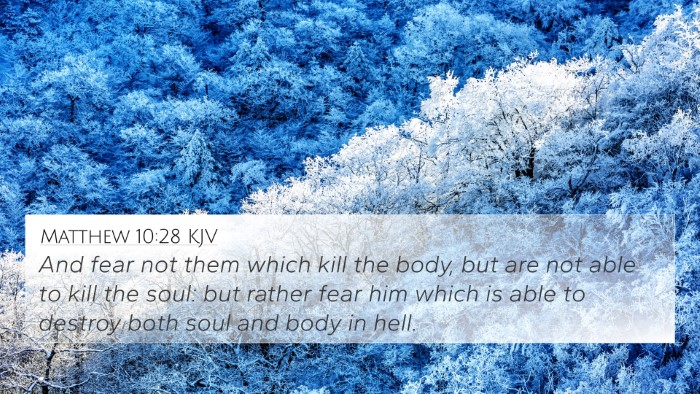 Matthew 10:28 (KJV) »
Matthew 10:28 (KJV) »
And fear not them which kill the body, but are not able to kill the soul: but rather fear him which is able to destroy both soul and body in hell.
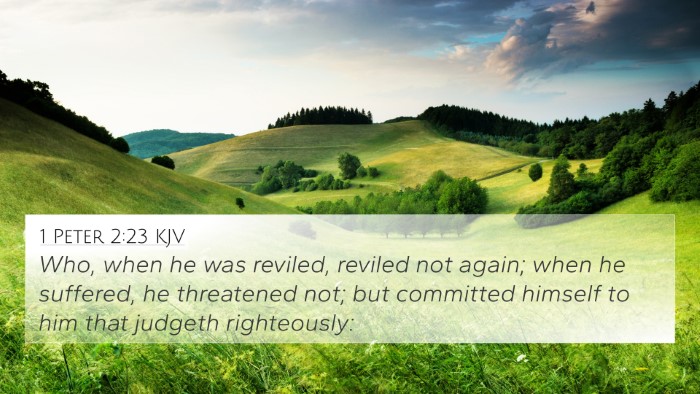 1 Peter 2:23 (KJV) »
1 Peter 2:23 (KJV) »
Who, when he was reviled, reviled not again; when he suffered, he threatened not; but committed himself to him that judgeth righteously:
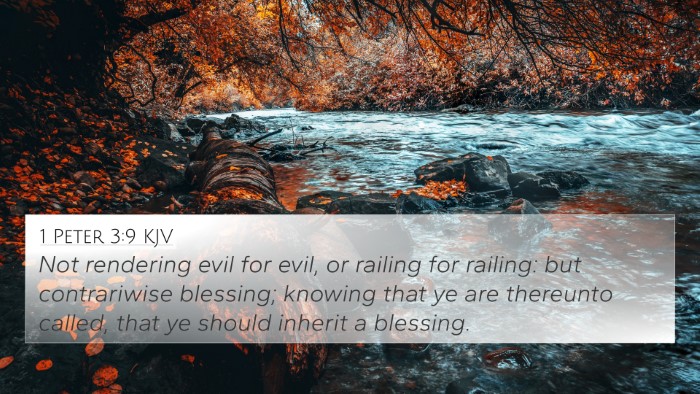 1 Peter 3:9 (KJV) »
1 Peter 3:9 (KJV) »
Not rendering evil for evil, or railing for railing: but contrariwise blessing; knowing that ye are thereunto called, that ye should inherit a blessing.
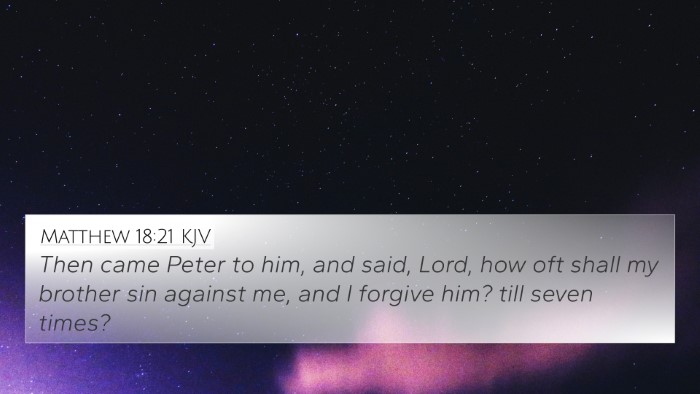 Matthew 18:21 (KJV) »
Matthew 18:21 (KJV) »
Then came Peter to him, and said, Lord, how oft shall my brother sin against me, and I forgive him? till seven times?
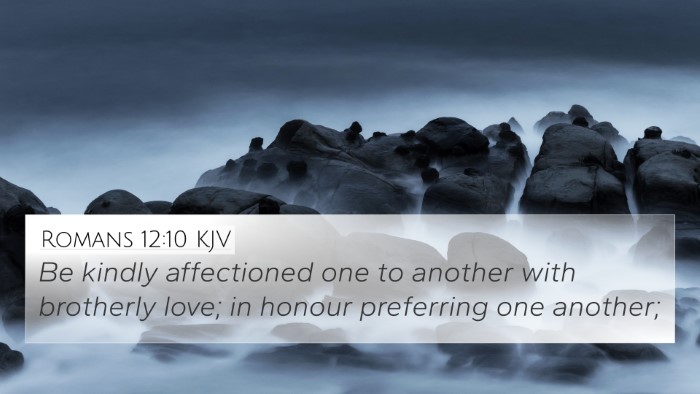 Romans 12:10 (KJV) »
Romans 12:10 (KJV) »
Be kindly affectioned one to another with brotherly love; in honour preferring one another;
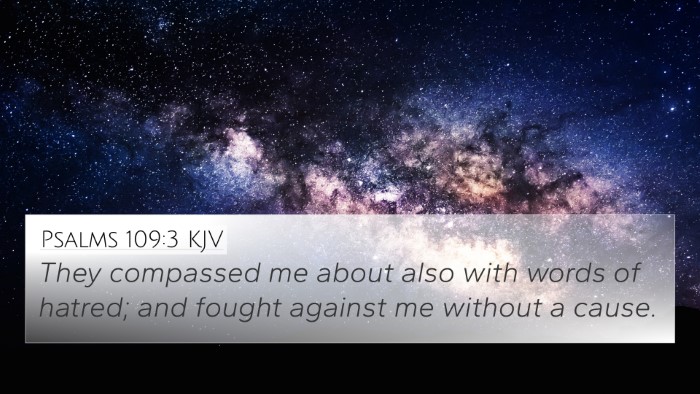 Psalms 109:3 (KJV) »
Psalms 109:3 (KJV) »
They compassed me about also with words of hatred; and fought against me without a cause.
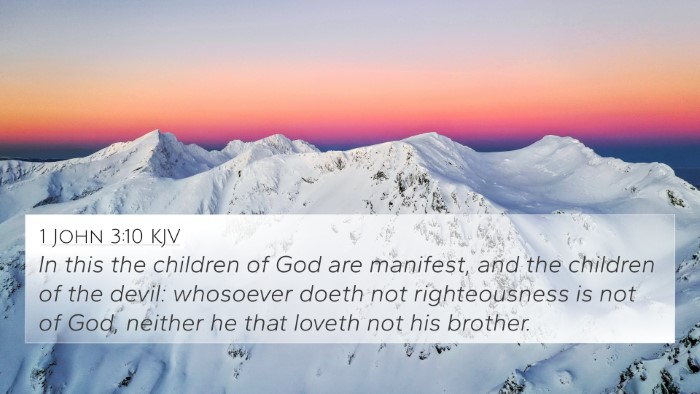 1 John 3:10 (KJV) »
1 John 3:10 (KJV) »
In this the children of God are manifest, and the children of the devil: whosoever doeth not righteousness is not of God, neither he that loveth not his brother.
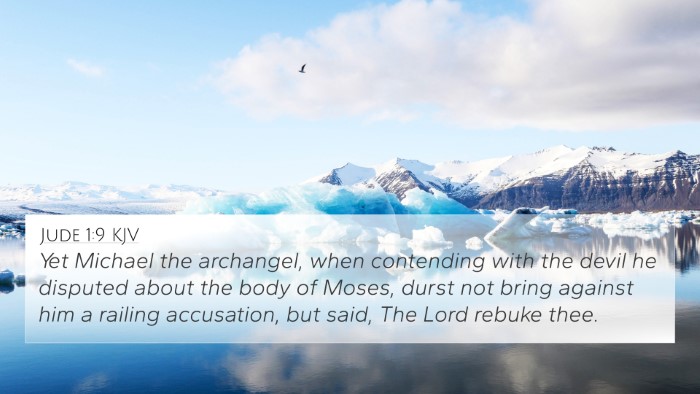 Jude 1:9 (KJV) »
Jude 1:9 (KJV) »
Yet Michael the archangel, when contending with the devil he disputed about the body of Moses, durst not bring against him a railing accusation, but said, The Lord rebuke thee.
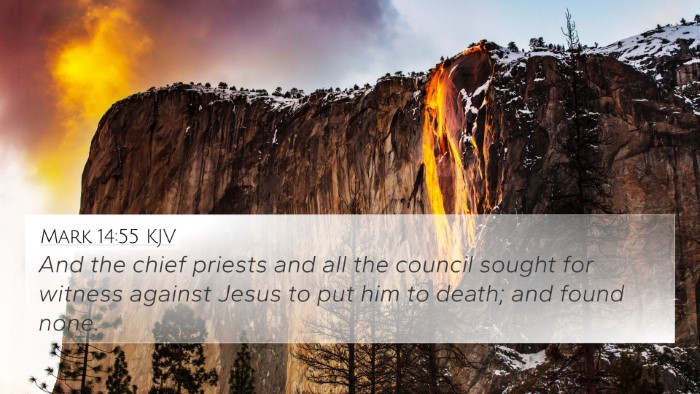 Mark 14:55 (KJV) »
Mark 14:55 (KJV) »
And the chief priests and all the council sought for witness against Jesus to put him to death; and found none.
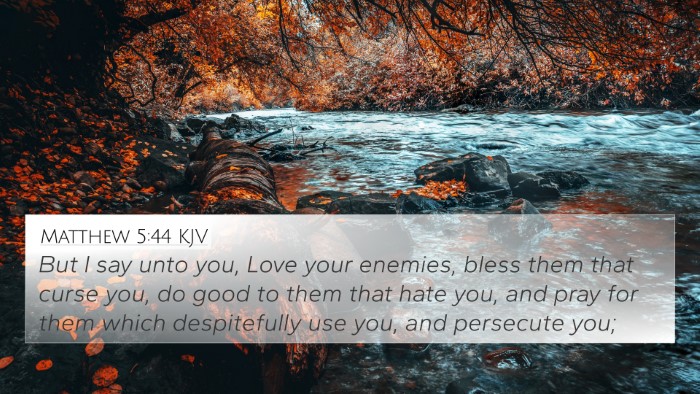 Matthew 5:44 (KJV) »
Matthew 5:44 (KJV) »
But I say unto you, Love your enemies, bless them that curse you, do good to them that hate you, and pray for them which despitefully use you, and persecute you;
 John 11:47 (KJV) »
John 11:47 (KJV) »
Then gathered the chief priests and the Pharisees a council, and said, What do we? for this man doeth many miracles.
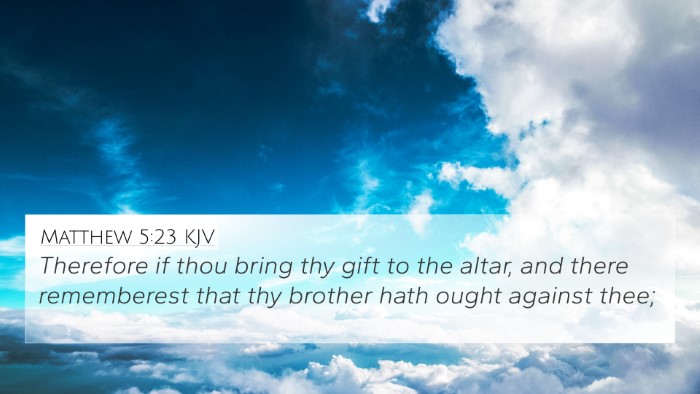 Matthew 5:23 (KJV) »
Matthew 5:23 (KJV) »
Therefore if thou bring thy gift to the altar, and there rememberest that thy brother hath ought against thee;
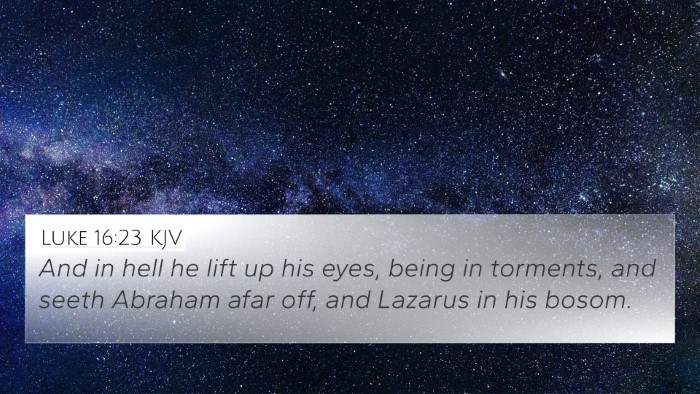 Luke 16:23 (KJV) »
Luke 16:23 (KJV) »
And in hell he lift up his eyes, being in torments, and seeth Abraham afar off, and Lazarus in his bosom.
 Matthew 26:59 (KJV) »
Matthew 26:59 (KJV) »
Now the chief priests, and elders, and all the council, sought false witness against Jesus, to put him to death;
 Mark 15:1 (KJV) »
Mark 15:1 (KJV) »
And straightway in the morning the chief priests held a consultation with the elders and scribes and the whole council, and bound Jesus, and carried him away, and delivered him to Pilate.
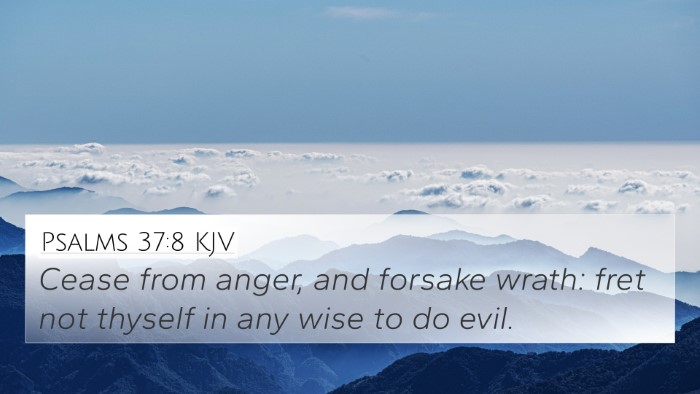 Psalms 37:8 (KJV) »
Psalms 37:8 (KJV) »
Cease from anger, and forsake wrath: fret not thyself in any wise to do evil.
